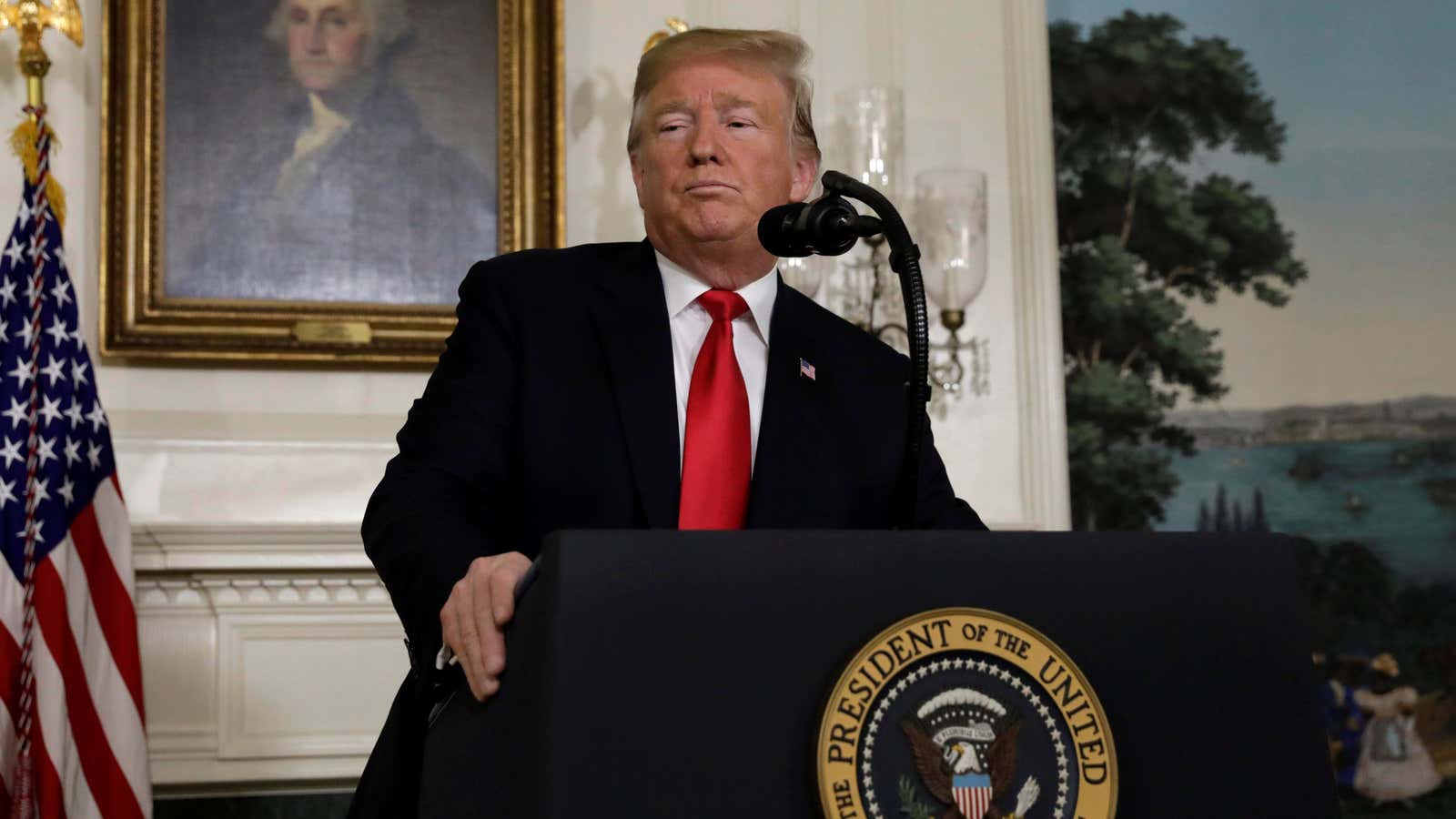Donald Trump made his first offer to settle the stalemate that’s shut the US government for more than four weeks today (Jan. 19)—temporary relief to about 1 million long-term American residents who the White House threatened with deportation earlier in his presidency.
In exchange for $5.7 billion to build 230 miles of “steel barriers in high-priority areas,” and in order to ”build the trust and goodwill necessary to build real immigration reform,” Trump said, he would offer three years of deportation relief and work permits to two groups. Those include the “Dreamers,” 700,000 young adults brought to the US illegally as children, and “Temporary Protected Status” recipients, some 300,000 people from catastrophe-stricken countries who have been in the US an average of 19 years.
Republicans and Democrats have been fighting over whether these groups should be granted citizenship or other permanent protections for years, but neither group was facing imminent deportation until Trump came to office.
In September 2017, Trump scrapped the Deferred Action for Childhood Arrivals (DACA) act that was introduced by Barack Obama in 2012 to protect “Dreamers” and allow them to work legally in the US. And Trump’s Department of Homeland Security has systematically failed to extend TPS status for large groups from El Salvador and other nations, reversing decisions by previous administrations dating back to 1990.
The Trump administration’s attempts to deport both of these groups are being blocked in federal courts; challenges could wind their way to the Supreme Court.
The notion that the Trump administration might be holding long-term US residents hostage for money for the wall isn’t hyperbole: As early as August 2017, GOP pundits were discussing this strategy. Hurricane Harvey prevented Trump from pushing a government shutdown that year.
Trump also used his speech to repeat disputed statements he has regularly employed to try to garner support for the wall, including that building one would have a big impact on drug trafficking, and that the US was facing a “security crisis on our southern border.” If he gets the wall funding he wants, Trump said at one point, the crime rate and drug problem would be “greatly reduced,” adding that “some say it would be cut in half.”
Chief of staff Mick Mulvaney, son-in-law Jared Kushner, and vice president Mike Pence are believed to have helped Trump come up with the “temporary protections for wall money” swap he detailed in his speech. In his speech, Trump claimed to have discussed today’s offer with “large numbers of Democrats to hear their priorities,” but it’s unclear in Washington who those Democrats were.
Democrats immediately rejected the offer. Nancy Pelosi, the House Speaker, called it an “unacceptable” compilation of “two previously rejected initiatives.” Adriano Espaillat, a Congressman from New York, dubbed the proposal “dead on arrival.”
